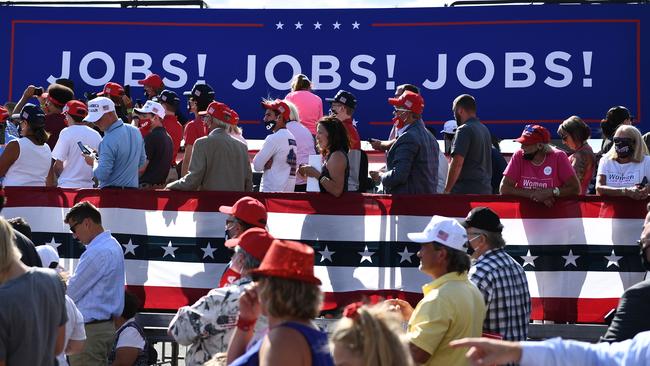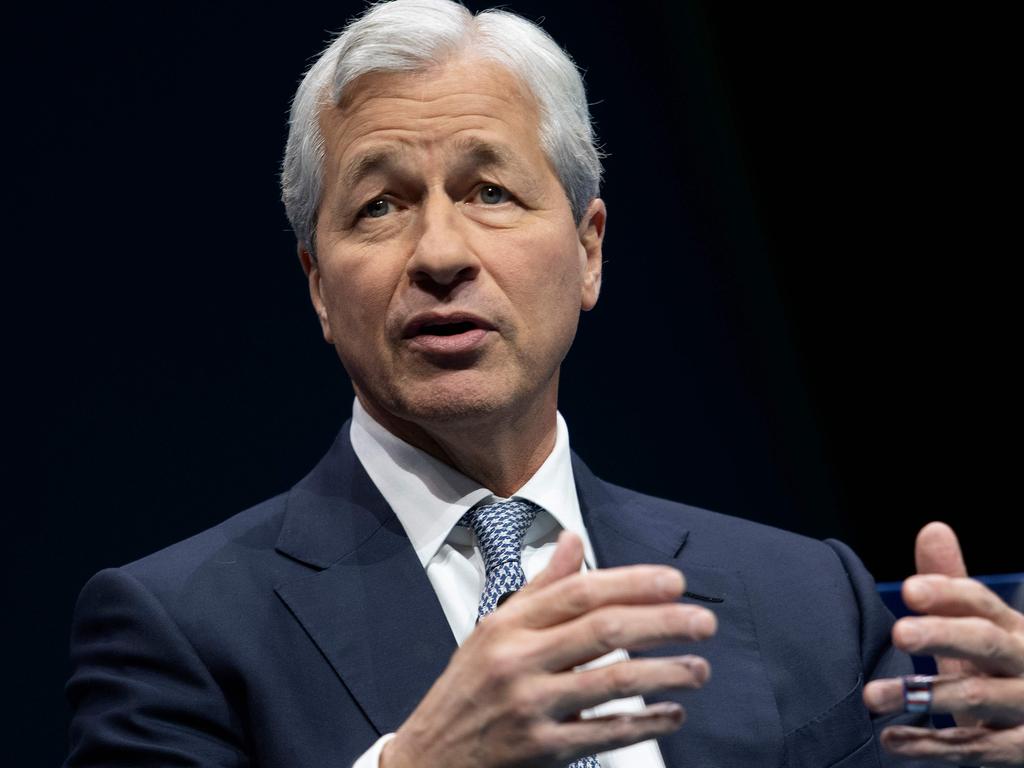
Economic output surged more than 33 per cent at an annual rate in the third quarter of the year, the most rapid bounce since World War II, as coronavirus restrictions eased and the shortest, sharpest recession on record came to an end.
More than 12 million of the 22 million jobs lost since March, when coronavirus began wreaking havoc on the US economy, have returned. Australia’s unemployment rate is expected to flirt with 8 per cent in coming months, but the US jobless rate dropped a full percentage point in October to 6.9 per cent, and will fall further.
He has also inherited one of the most economically unequal nations.
Over the 20 years to 2019, median household income in the US rose less than 10 per cent to $US68,000. The household at the 95th percentile enjoyed a $US90,000 bump to $US451,000 over the same period. And the richest 1 per cent of families owned a steadily rising 30 per cent in 2019 of the US’s wealth.
It’s worse now after a pandemic and response to it that has hit the poor hardest, while white collar professionals enjoy working from home watching stock portfolios and house prices soar.
Biden’s challenge will be to intelligently rein in the income and wealth gap, which has helped fuel the resentment that lead to Donald Trump being elected in 2016, without derailing the US economic revival.
It’s a challenge unlikely to be met if the new president emboldens US state governments to impose rolling lockdowns, which may or may not save lives but would certainly slow the economic recovery and see low-paid jobs in hospitality and retail sectors evaporate once again.
Meanwhile, a Senate likely to remain Republican will throttle any attempt to reverse Trump’s tax cuts, let alone increase taxes.
For investors, the indecision looks like a Goldilocks scenario: more fiscal spending without any tax increase to pay for it.
Blue chip US stock soared 7 per cent this week, almost surpassing the all-time high of 3500 points, as investors anticipate another, potentially trillion-dollar round of fiscal stimulus to be passed in the early months of Biden’s presidency.
The US is the closest to conducting a grand experiment with Modern Monetary Theory than any nation.
The US federal government’s budget deficit over the 12 months to September was $US3.1 trillion, the biggest since 1945 as a share of the economy and more than triple the deficit of the previous year.
To help pay for it, the US Federal Reserve has been buying about $US120bn of US government bonds a month with newly created money.
In the great financial crisis, the Fed’s balance sheet doubled to $US2 trillion; it’s above $US7 trillion now.
The Fed owns about a fifth of the US government’s bonds.
So far, the strategy, which is being emulated in a less extreme manner elsewhere, doesn’t have much of a downside.
How the experiment ends is anyone’s guess, though. But turning 78 later this month, it’s not likely to be Biden’s problem.








President-elect Joe Biden inherits one of the fastest growing economies in the world.